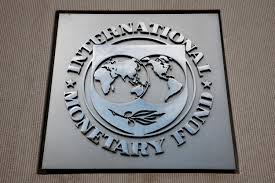-By LeN Political Correspondent

(Lanka-e-News -14.May.2025, 11.10 PM) It appears the International Monetary Fund (IMF) has graduated from being a lender of last resort to an unsolicited financial babysitter with delusions of empire. In its latest unsolicited micromanagement memo, the IMF has waltzed into Sri Lanka not merely to restructure a sinking economy but to restructure the very definition of national sovereignty.
Their latest decree? Thou shalt not offer tax concessions to foreign investors. The reason, we are told, is to protect government revenue and prevent a repeat episode of what they call “fiscal erosion.” But to many Sri Lankans, especially those peering out from beneath a mountain of inflation and economic despondency, it feels more like: “Thou shalt not attract capital. Thou shalt stay broke. And most importantly, thou shalt listen to us.”
Let’s be clear. Sri Lanka didn’t invite the IMF over for tea and cake. It was more a case of, “Dear God, everything is on fire.” In strode the IMF, briefcase in one hand, spreadsheet in the other, with promises to extinguish the flames. But instead of a firehose, they brought a flamethrower made of austerity, bureaucracy, and now, a tax policy manual thicker than the Mahavamsa.
One would assume the IMF’s job was to help Sri Lanka reduce its deficit—primarily by controlling excessive government spending, restructuring flailing State-Owned Enterprises (SOEs), and guiding rational economic decisions. Fair enough. The nation has suffered years of self-inflicted wounds: the SOE parade of wastefulness, from SriLankan Airlines to the State-run Toothbrush Corporation (no, not a joke), deserved intervention. We recall the glorious privatization carnival of the 1990s, when steel, tyres, fertilizer, salt, and even tea plantations were sold off with the same casualness as old cricket bats at a yard sale. Most deals went for less than a Tuk Tuk ride in Colombo.
But the recent IMF tantrum about Sri Lanka’s intention to offer tax concessions—particularly to attract big-ticket foreign direct investment into the much-hyped Colombo Port City—is a new genre of financial fiction.
Apparently, allowing tax holidays to long-term investors is now a sin. That would come as news to Dubai, Singapore, and Hong Kong, all of which routinely hand out tax incentives like confetti at a royal wedding—and yet, somehow, remain the IMF’s poster children for sound policy.
Sri Lanka, on the other hand, is being told: “No biscuits for you.”
This is particularly baffling when one considers that the Port City project, if properly executed (and that’s a big if), could attract over $150 billion in investment over the next few decades. That’s thirty years' worth of IMF loans—without the small print.
It’s as if the IMF is actively trying to prevent Sri Lanka from standing on its own two feet. Instead of offering the tools to grow, they’re handing us a ruler to measure how tall we’re not allowed to be.
Even more puzzling is the timing. Just as Sri Lanka is finally building the highway to connect the Port City to the rest of the country—after decades of “infrastructure lethargy”—in swoops the IMF with its clipboard, asking: “Are you sure you want to make yourself competitive?”
One must wonder: if Sri Lanka is not allowed to offer competitive tax breaks, what’s left to offer? Surely not speed, efficiency, or transparent governance—these aren’t exactly areas in which we’ve set world records. Investors don’t line up because your government has charming press conferences. They line up because the numbers make sense.
If the IMF’s rationale is that tax concessions erode state revenue, then we humbly suggest they walk down memory lane to the last two decades, where Sri Lanka collected revenue from no one and spent like it was running a tab at Buckingham Palace. Where were you then, IMF? Enjoying the hors d'oeuvres at a donor conference?
This isn’t to say Sri Lanka doesn’t need reform. It absolutely does. The debt-to-GDP ratio looks like a post-apocalyptic skyline. Government ministries resemble black holes for public money. But cutting off tax incentives to woo major investors—especially from China—isn’t reform. It’s self-sabotage disguised as purity.
Sri Lanka needs around $30 billion in fresh capital annually to even begin catching up to regional competitors. So far, it’s only managed to scrape together $4 billion, mostly from Sinopec’s fuel storage ventures. That’s not even enough to buy an oil tanker’s Wi-Fi plan.
And yet, here we are—told not to incentivize, not to innovate, and definitely not to deviate from the Holy Gospel According to the IMF.
One might be forgiven for asking: who benefits from Sri Lanka’s stagnation? If we can't compete with Singapore, we become dependent on foreign aid. If we don’t grow, we stay docile. If we don’t offer tax breaks, no one comes.
Maybe that’s the point.
But before Sri Lankans take this as gospel, they might do well to remember: the IMF has been wrong before. About Argentina. About Greece. About its own coffee budget.
This time, Sri Lanka must politely nod, smile, and quietly build its Port City into something spectacular. With or without the blessing of the Spreadsheet High Council.
Because if the IMF thinks it can pull off economic miracles by banning tax concessions, it may want to consider investing in something stronger than data.
Like common sense.
--By LeN Political Correspondent
---------------------------
by (2025-05-14 21:26:47)
Leave a Reply